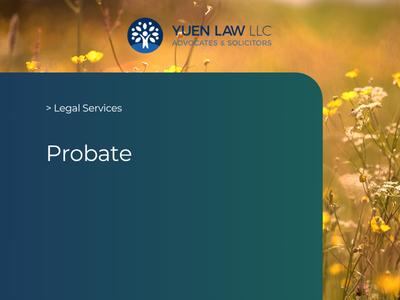When the Court Will Require Sureties
When applying to the court for a grant of letters of administration, the Court requires two sureties in the following situations:
(a) The estate and effects for which the grant is applied exceed $5 million, excluding what the deceased held as a trustee and not beneficially, and without deducting debts owed by the deceased.
(b) There are minor beneficiaries (under 21 years old) in the estate.
(c) There is a life interest in the estate.
(d) There are beneficiaries who lack capacity under the Mental Capacity Act (Cap. 177A).
(e) The grantee is a creditor.
(f) Any other cases as deemed fit by the Registrar.
We can advise you on how to apply for a dispensation of sureties. The success of this application depends on providing suitable justification, such as efforts made to find sureties, reasons why sureties cannot be found, and whether there is consent from all adult beneficiaries.
What is a Surety
In the context of a grant of letters of administration, a surety is a person who provides a financial guarantee to the court, ensuring that the administrator of an estate will perform their duties lawfully and responsibly. This includes managing and distributing the deceased’s assets according to the law and the terms of the estate. If the administrator fails to fulfill their obligations, the surety may be held financially liable to cover any resulting losses or damages, thereby protecting the interests of the beneficiaries and creditors of the estate. Essentially, the surety acts as a security for the grant of letters of administration.
As stated in Section 58 of the Housing and Development Act, HDB properties cannot be used as sureties for this purpose.

